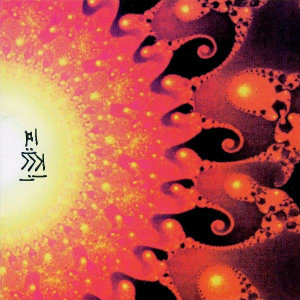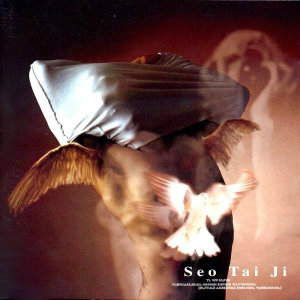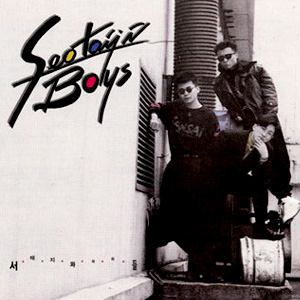A boy band is a vocal group consisting of young male singers, usually in their teenage years or in their twenties at the time of formation. Generally, boy bands perform love songs marketed towards girls and young women. Many boy bands dance as well as sing, usually giving highly choreographed performances. South Korean boy bands usually also have designated rappers. Most boy band members do not play musical instruments, either in recording sessions or on-stage. They are similar in concept to their counterparts known as girl groups.

Seo Taiji and Boys was a South Korean music group active from 1992 to 1996. The three members of the boy band, Seo Taiji, Yang Hyun-suk and Lee Juno, experimented with many different genres of popular Western music. Seo Taiji and Boys was highly successful and is credited with changing the South Korean music industry by pioneering the use of rap in Korean popular music and utilizing social critique, despite pressure from ethics and censorship committees.

Jeong Hyeon-cheol, better known as Seo Taiji or Seo Tae-ji (서태지), is a South Korean singer, musician, songwriter and record producer. After dropping out of high school to pursue a music career, he rose to become one of the most prominent and influential cultural icons in South Korea, with many referring to him as "the President of Culture".

7th Issue is the third studio album by the Korean musician Seo Taiji and his seventh counting the four albums released by Seo Taiji and Boys. The album was a commercial success as the best-selling album of the year in South Korea, with 482,066 copies sold, it did not reach the heights of his previous two. "Live Wire" won the 2004 Mnet Asian Music Award for Best Rock Performance.

Seo Taiji Company is a South Korean entertainment company headquartered in Seoul, South Korea. The company was founded in 2001 by South Korean musician Seo Taiji.
Taiji, tai chi, or t'ai chi (太極) may refer to:

Kim Ji-ah, better known by the stage name Lee Ji-ah, is a South Korean actress. She rose to fame with her role in the television drama The Legend (2007), and has since further participated in Beethoven Virus (2008), Athena: Goddess of War (2010), Me Too, Flower! (2011), Thrice Married Woman (2013), My Mister (2018), The Penthouse: War in Life (2020–2021) and Queen of Divorce (2024).
Dongducheon Rock Festival is an annual rock festival, which has been held in late summer since 1999 in Dongducheon, South Korea. The motto of the festival includes hopes and wishes for peaceful reunion of South and North Korea. It is considered one of major music festivals in South Korea.
Sinawe is a heavy metal/rock band from South Korea. Led by guitarist and sole constant member Shin Daechul, they are credited as being the first heavy metal band in South Korea. During its golden age in the late 1980s and mid 1990s, many now renowned musicians such as Yim Jae-beom, Kim Jong-seo, Seo Taiji and Bada Kim honed their musical abilities while members of Sinawe.

Pia (Korean: 피아) was a South Korean alternative rock band formed in Busan in 1998. Meaning 'the Universe and I' or 'You and I' in Chinese characters, Pia was originally formed by Hullang Lee (guitar), Kibum Kim (bass) and Yohan Ok who were later joined by Simz No and, after several member changes on drums, Hye Seung Yang (drums). The band has maintained this line-up ever since their first official gig together, the 2001 Ssamzie Festival.

Valley Rock Festival was held annually on the last weekend of July. Sharing many artists, the festival is arranged by 9 Ent, which is Smash Corporation, and in close coordination with Japanese Fuji Rock Festival. In 2009 on the festival's maiden year, there were some controversies regarding the festival's split from neighboring Pentaport Rock Festival. However the festival's sponsor changed to Mnet media in 2010 and CJ E&M in 2011. VRF has been successful and has grown into one of South Korea's biggest music festivals.

Ultramania is the second studio album by Korean musician Seo Taiji. Although it is the second solo album by Seo, some refer to it as his sixth counting the four albums released by Seo Taiji and Boys. The album, with its nu metal sound, has sold over a million copies, making it one of the best-selling albums in South Korea. Ultramania spawned three number-one singles, "Ultramania", "Feel the Soul" and "Internet War".

Lee Eun-sung is a South Korean actress. She made her acting debut in the youth drama Sharp, followed by roles in the television series Evasive Inquiry Agency (2007), and the films Dasepo Naughty Girls (2006), Milky Way Liberation Front (2007) and Take Off (2009).

Seo Tai Ji is the debut studio album by Korean musician Seo Taiji, released in 1998. Although it is the first solo album by Seo, some refer to it as his fifth following the four albums released by Seo Taiji and Boys. The musician created the album entirely by himself, including playing every instrument and producing it. The album was released in 1998 while Seo lived in the United States and, with no promotion, it sold over 1.3 million units, making it one of the best-selling albums in South Korea.

Seo Taiji and Boys is the debut studio album by South Korean musical trio Seo Taiji and Boys, released via Bando Records on March 23, 1992. Written primarily by Seo Taiji, the record incorporates and fuses various genres including new jack swing, techno, R&B and hip hop. It spawned the group's first big hit and now their signature song, "I Know".

Quiet Night is the ninth studio album by South Korean singer-songwriter Seo Taiji, and his fifth solo studio album. It was released on October 20, 2014, by Seo Taiji Company and distributed by CJ E&M Music. The album was preceded by two singles: the collaborative song "Sogyeokdong" and the lead track "Christmalo.win". It is Seo's first full-length release after a five-year hiatus since Seotaiji 8th Atomos (2009).

Zanybros is a South Korean video production company specializing in music video and commercial film production.

Seo Taiji and Boys III is the third studio album by Korean musical group Seo Taiji and Boys. With over 1.6 million copies sold, it is one of the best-selling albums in South Korea.
"Come Back Home" is a song by South Korean boy band Seo Taiji and Boys, from their fourth and final self-titled studio album, which was released on October 5, 1995. The group's foray into gangsta rap, the song's lyrical content addresses the societal pressures on young people that push them to run away from home, while the refrain conveys the perspective of the runaways' parents.
Korean indie, referring to independent music in South Korea, developed in the 1990s in Hongdae, an area of Northwestern Seoul. It is widely regarded as the counterpart to K-pop; whereas K-pop is characterized by a commercialized image targeting a specific audience, Korean indie emphasizes the authentic messages of musicians.













